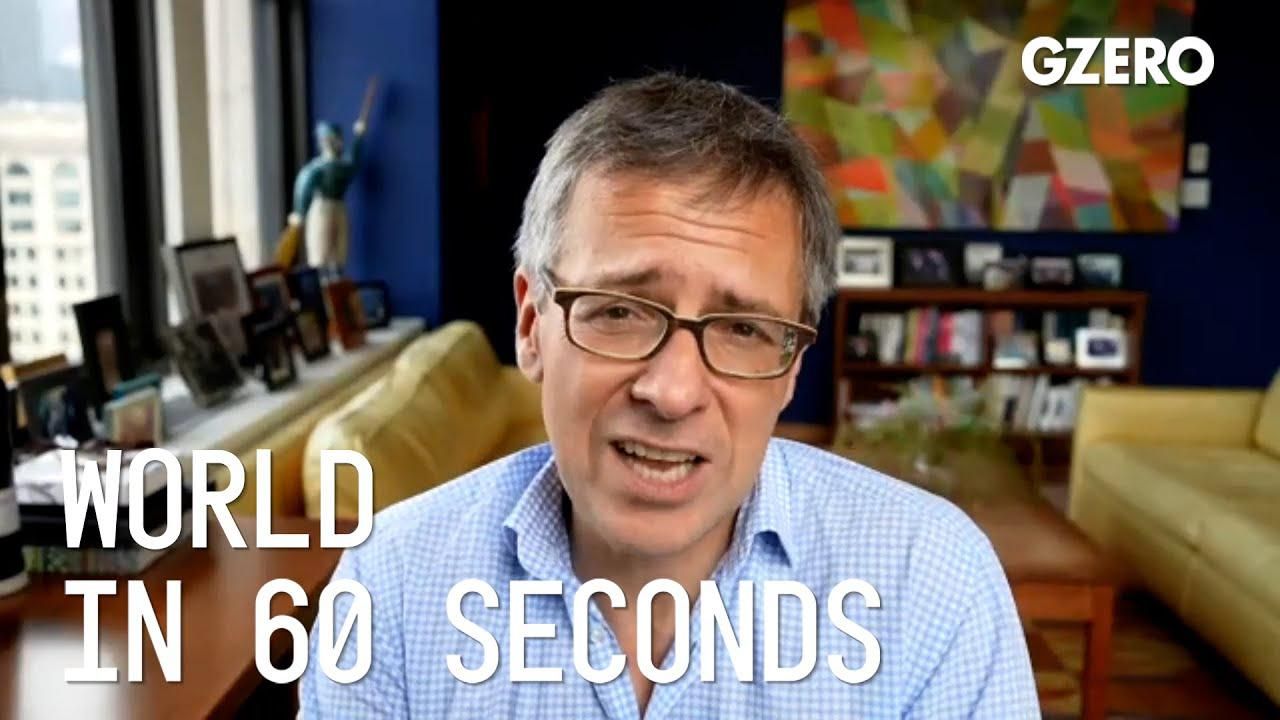Ian Bremmer shares his insights on global politics this week on World In :60:
First, will Boris Johnson step down?
I certainly think it is getting likely. He's going to be out, one way or the other. The question is, is it as a result of a second in one month no-confidence vote that he loses this time around, or he reads the writing on the wall, knows he's going to get voted out and so decides to resign himself. If you made me bet, I think he's going to resign, but he might well just force them to do it. He's lost… a majority of conservative voters in the United Kingdom now want Boris Johnson to step down. He's had scandal after scandal after scandal, lied, been caught lying about so many of those scandals, and it's just a disaster, frankly. While the economy's doing badly, while Brexit has not played out the way he said it would, this is a man that has well passed his sell-by date and I don't expect he will be there as prime minister for much longer.
Secondly, with Beijing rolling out China's first vaccine mandate, how soon will China ease its lockdowns?
Not soon enough. This is a big mistake for the Chinese. They're the one country in the world, of course, that had no problem, at scale, doing lockdowns and surveillance for their population and yet they didn't bother with vaccine mandates, and they should have, especially for older populations, especially for vulnerable populations. This mandate is only in Beijing. It's not hitting restaurants. It's just hitting a bunch of other public venues. It's not hitting public transportation. It will matter for Beijing, but it's not enough. They need to be much more extensive around the country before they're going to be able to start loosening zero-COVID policy. I think we're still looking at early to mid next year at the earliest.
Is the United States the only developed country struggling with mass shootings?
Yeah, nobody else close than the United States, and the US is the only country that has assault type weapons that are so easily accessible in the hands of its population. That is the fundamental policy difference between the United States and Canada, between the US and Australia, between the US and Japan, the US and the Europeans. If you look at all of these different countries, they all have various amounts of mental illness, they have different amounts of economic inequality, they have different amounts of racial challenges than the rest. The United States is the one where you have all of this gun violence. Yes, a lot of the gun violence isn't mass shootings. A lot of it is, frankly, in inner cities. It's poor, it's overwhelmingly Black in the United States, but it's with guns. And if you look at how many people are killed through violence and it's not with guns, it's a tiny fraction of that. And so if you had more effective background checks on who's able to get guns, if you had effective checks on assault weapons, assault type weapons, it would be a very different story in the US. The US is very significantly struggling with it and is doing absolutely nothing to make a difference.
More For You
Americans are moving less — and renting more. Cooling migration and rising vacancy rates, especially across the Sunbelt, have flattened rent growth and given renters new leverage. For many lower-income households, that relief is beginning to show up in discretionary spending. Explore what's changing in US housing by subscribing to Bank of America Institute.
Most Popular
Walmart’s commitment to US-made products
What’s Good Wednesdays™, February 4, 2026
1,170: The number of high-rise buildings in Kyiv that were left without heating following a barrage of Russian attacks last night on Ukraine’s capital and its energy facilities, per Kyiv Mayor Vitali Klitschko.
Over the past five years, Haiti has endured extreme political turmoil, escalating violence, and one of the world’s worst humanitarian crises.
Microsoft unveiled a new set of commitments guiding its community‑first approach to AI infrastructure development. The strategy focuses on energy affordability, water efficiency, job creation, local investment, and AI‑driven skilling. As demand for digital infrastructure accelerates, the company is pushing a new model for responsible datacenter growth — one built on sustainability, economic mobility, and long‑term partnership with the communities that host it. The move signals how AI infrastructure is reshaping local economies and what people expect from the tech shaping their future. Read the full blog here.
